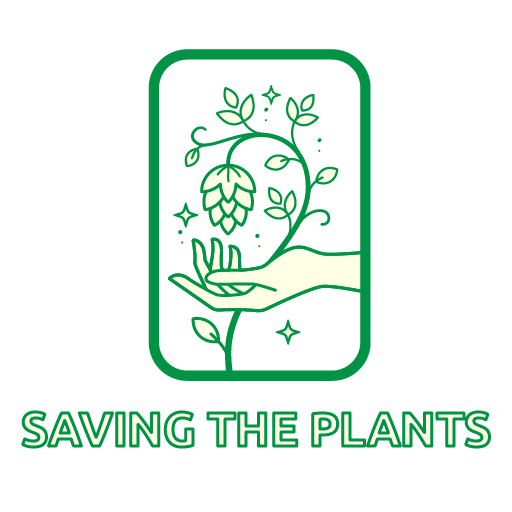Climate anxiety has moved beyond just being a slight hum for a growing number of people around the world. It’s become so alarming for many of us that it’s changing the way we live, shop, and make decisions in our jobs.
As worries about rising seas and wildfires grow heavier, eco-conscious brands are stepping up. They’re not only offering greener products, but also showing real care for the emotional and physical toll it’s taking on people across the globe.
The dread of a warming planet is hitting hard, especially for youngsters who see their future tangled up in environmental chaos.

What Is Climate Anxiety?
It’s a gnawing fear tied to the planet’s future, like melting ice caps or stress about what’s coming next. It’s real and it’s growing.
A 2023 study from Antioch University found that 68% of U.S. adults report experiencing climate-related stress, and nearly half of young adults say it affects their daily lives. It’s not just a passing worry. It’s something that lingers, shapes behavior, and alters how people move through the world. Deloitte’s 2023 survey backs this up: 69% of Gen Z say climate worries shape their job and shopping choices.
It’s not just a feeling, it’s a force pushing people to demand more from the brands they support. And for some, that demand isn’t just external.
Climate anxiety can show up as guilt over daily choices, burnout from constant eco-effort, or a paralyzing sense that nothing they do is enough. It’s a quiet grief for what’s already been lost and a loud urgency to protect what’s left.
That emotional load is heavy, and it’s why people are looking for brands that don’t just sell sustainability, but actually live it.

The Mental Health Impact of Climate Anxiety
If climate anxiety is ignored, it can begin to disrupt daily life, impacting everything from sleep and focus to relationships and mood. Acknowledging it as a real and legitimate mental health issue is an essential first step in learning how to cope and build emotional resilience.
Jenna Nielsen, Clinical Social Work/Therapist, MSW, LCSW says: Beyond formal meditation sessions, integrating mindfulness and some of these recommendations into your daily routine can make a big difference
Focus on What You Can Do, Do One Thing at a Time: Even small, consistent actions can give you a sense of purpose and control. Try focusing on one thing at a time, and notice how much more effectively you can complete it.
Incorporating even a few eco-friendly habits into your daily routine can help shift your home from simply functional to purposefully sustainable.
Laundry is one of the most frequent household chores, and a major source of plastic waste and water use. Swapping traditional detergent for sustainable laundry sheets, is a small change with a big impact. Some of these sheets are plastic-free, lightweight, and often come in compostable packaging. Plus, they require less water to produce and transport, making them a smarter, greener choice for your home and the environment. Fabrienne Bottero, eco-conscious consumer at The Laundry Guru says: One way I reduce my plastic footprint is by replacing liquid laundry detergent with plastic-free, non-toxic laundry detergent sheets. In fact, since switching, I have found that laundry detergent sheets are actually more convenient, mess-free, and just as effective as liquid detergent, and I’m not the only one who’s noticed.
Our personal care routines can also support eco-conscious living. Choosing eco-friendly, cruelty-free skincare and cosmetic products helps reduce harm to animals and the environment. Look for labels that mention vegan formulas, recyclable packaging, and non-toxic ingredients. Many brands now offer pet-safe and planet-safe options that don’t compromise on quality or performance. It’s self-care that cares back.
Switching to sustainably made clothing, such as pieces made from organic cotton, bamboo, or recycled fibers, can significantly reduce your carbon footprint. Supporting brands that prioritize ethical labor practices and minimal waste also helps build a more responsible fashion industry. Even choosing to buy fewer, higher-quality pieces can make a long-term difference.

You’re not alone in how you feel, listen to others experiencing the same, pay attention to their words and their emotions without planning your response in advance. This kind of mindful communication can deepen your connections with others and help you feel connected and supported.
Join local environmental groups, online communities, or volunteer opportunities where you can connect with others who care. Being part of something bigger can be incredibly grounding.
Take Breathing Breaks, staying informed is important. But doomscrolling headlines 24/7 can spike anxiety fast. Whenever you feel stressed or overwhelmed, take a moment to pause and take a few deep breaths. This simple act can help calm your mind and bring you back to the present moment.
If your climate anxiety feels like too much to carry on your own, there’s no shame in getting help. Therapists who understand eco-anxiety or climate-related stress can offer tools and support that make a real difference.

Wrapping Up – Purpose Is the Future
Climate anxiety isn’t going away, it’s a signal of how deeply people care about the planet. Brands that respond with real action, like HeySunday or Grove Collaborative, aren’t just selling products; they’re building a movement. By blending sustainable business practices with care for emotional health, they’re shaping a future where business does good for both people and the Earth.


